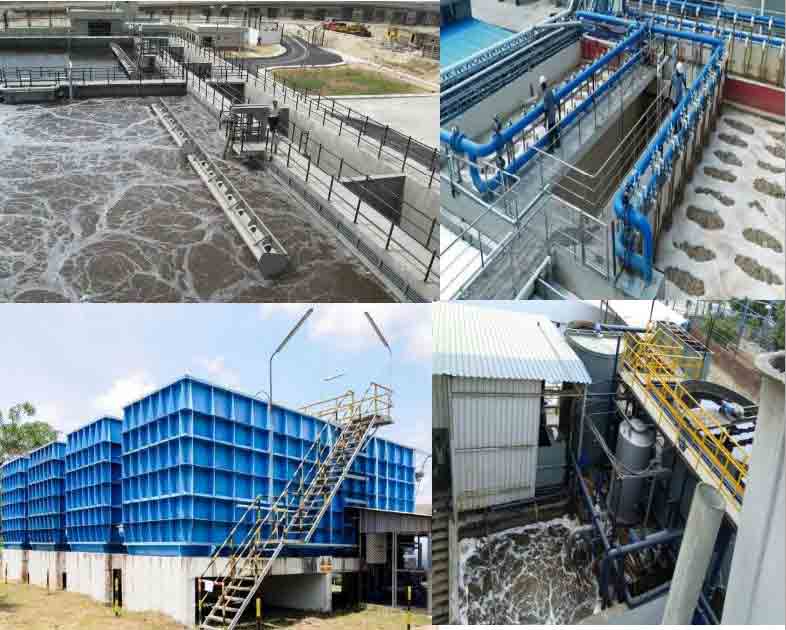Improving Industrial Effluent Treatment in Bangladesh
Bangladesh’s economic boom, particularly in the textile industry, has brought immense prosperity. However, this very growth poses a challenge: the responsible disposal of industrial wastewater. Contaminated water, if left untreated, wreaks havoc on the environment and public health.
Here’s where Effluent Treatment Plants (ETPs) come in as the guardians of Bangladesh’s water resources. But the existing systems require an upgrade. This blog post dives deep into the industrial wastewater treatment landscape in Bangladesh, exploring:
- The pressing need for improvement
- Advanced technologies for optimizing ETPs
- Sustainable solutions for a cleaner future

Impact of Untreated Industrial Wastewater
Imagine a world where rivers run black, and aquatic life struggles to gasp for breath. This grim reality becomes Bangladesh’s future if industrial effluent continues to flow untreated. Untreated wastewater is a toxic cocktail of:
- Heavy metals like chromium and lead
- Harmful chemicals from dyes and detergents
- Organic pollutants that deplete oxygen in water bodies
The consequences are far-reaching:
- Degradation of aquatic ecosystems: Fish populations dwindle, biodiversity plummets, and rivers become breeding grounds for waterborne diseases.
- Contaminated water sources: Polluted water seeps into the ground, jeopardizing drinking water supplies for communities.
- Public health risks: Exposure to contaminated water can cause skin diseases, respiratory problems, and even life-threatening illnesses.
Upgrading Bangladesh’s ETP Infrastructure
The good news? Bangladesh acknowledges the gravity of the situation. The Department of Environment (DoE) has set stricter regulations for ETP compliance. However, many existing plants are:
- Outdated: They lack the capability to handle the complex pollutants generated by modern industries.
- Inadequately maintained: Regular maintenance is crucial for optimal performance, and negligence in this area significantly reduces treatment efficiency.
Optimizing Industrial Effluent Treatment
Upgrading Bangladesh’s ETPs requires a comprehensive approach that integrates:
- Advanced Technologies:
- Membrane filtration: These sophisticated systems utilize semi-permeable membranes to remove microscopic pollutants and organic matter, ensuring exceptionally high treatment efficiency.
- Biological treatment: Harnessing the power of naturally occurring microorganisms, these systems break down organic pollutants in the wastewater, mimicking natural biodegradation processes.
- Chemical precipitation: This method employs specific chemicals to induce the formation of solid particles that can be easily separated from the treated water.
- Sustainable Solutions:
- Zero Liquid Discharge (ZLD): This cutting-edge technology aims to eliminate any liquid waste discharge. The treated water can even be reused for specific industrial applications, promoting a circular economy.
- Sludge management: The concentrated waste material generated during treatment (sludge) needs proper disposal. Implementing efficient methods like incineration or using it as a fuel source can minimize environmental impact.
- Government Regulations and Enforcement:
- The DoE must strengthen enforcement mechanisms to ensure industries comply with the set standards.
- Investing in research and development of cost-effective and sustainable ETP solutions tailored to Bangladesh’s specific needs is crucial.
Public-Private Partnerships
Public-private partnerships (PPPs) can play a pivotal role in accelerating the upgrade of Bangladesh’s ETP infrastructure. By leveraging private sector expertise, technological advancements, and financial resources, the government can:
- Facilitate the installation of advanced ETPs: Private companies can provide the necessary technology and funding to establish state-of-the-art treatment facilities.
- Promote knowledge sharing and capacity building: Collaboration between government agencies, research institutions, and private entities can foster the development of skilled personnel trained to operate and maintain these advanced systems effectively.
The Road to Crystal Clear Waters
Upgrading Bangladesh’s industrial effluent treatment system is not just a technical challenge; it’s a collective responsibility. Here’s how stakeholders can contribute:
- Industries: Investing in modern ETPs, ensuring proper maintenance, and adopting sustainable practices like water reuse are essential commitments.
- Government: Enhancing regulations, providing incentives for adopting advanced technologies, and fostering PPPs are crucial steps.
- Civil society: Raising public awareness about the gravity of the situation and advocating for stricter environmental policies can drive positive change.
FAQs
Why is improving industrial effluent treatment crucial in Bangladesh?
Untreated industrial wastewater pollutes rivers, harms aquatic life, and contaminates drinking water sources. Upgrading treatment plants safeguards public health and the environment.
What are some advanced technologies for optimizing ETPs?
Membrane filtration removes minute pollutants, biological treatment utilizes natural microbes for breakdown, and chemical precipitation separates solid waste from treated water.
How can public-private partnerships contribute to improving ETPs?
Private companies can provide expertise, technology, and funding for advanced plants. Collaboration fosters knowledge sharing and capacity building for effective operation and maintenance.